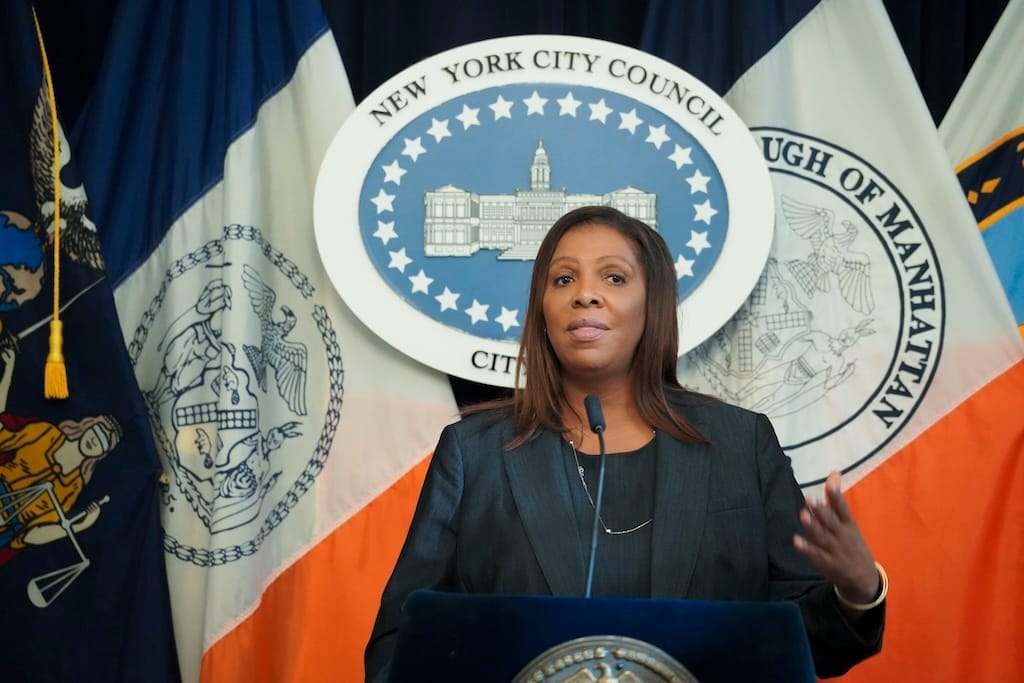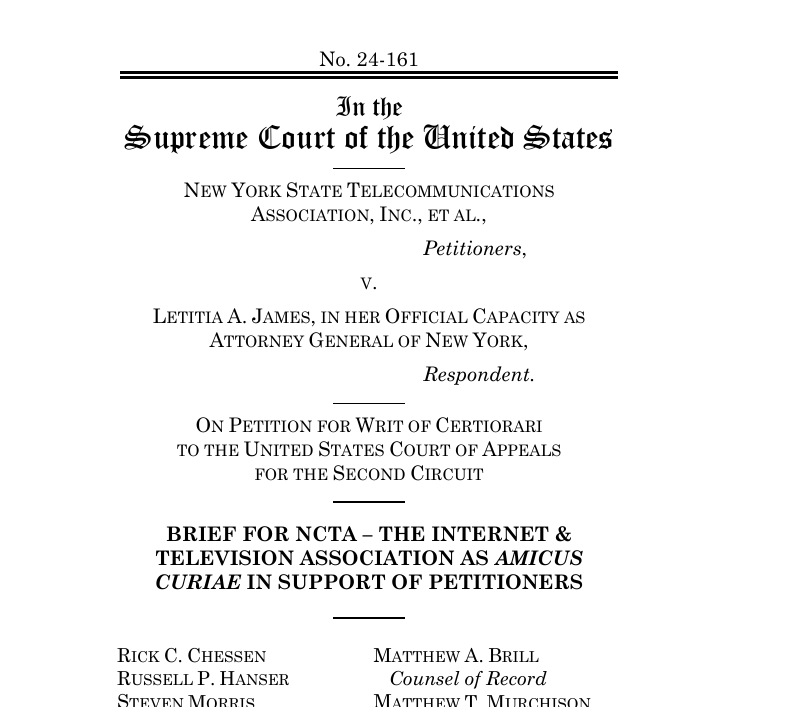Cable, Chamber of Commerce Ask SCOTUS to Toss N.Y. Broadband Law
Industry groups asked SCOTUS to strike down the Affordable Broadband Act – but only after net neutrality is sorted out.
Jake Neenan

WASHINGTON, Sept. 16, 2024 – Broadband ISPs have a request for the highest court in the land: Don't let the 50 states set the retail price of Internet access. The cable industry and the U.S. Chamber of Commerce agree.

The latter two groups went last week to the Supreme Court to support a request to invalidate a New York affordable broadband law, enacted in 2021 with the signature of Gov. Andrew Cuomo (D).
“The fundamental issue is that New York’s attempt at rate regulation conflicts with the Communications Act itself,” NCTA, the cable industry group, wrote in an amicus brief posted Friday. “Regardless of what the FCC decides to do (or not do), that statute is clear, and the states cannot subvert congressional intent by treating broadband providers as rate-regulated common carriers.”
The U.S. Court of Appeals for the Second Circuit upheld in April New York’s Affordable Broadband Act, which requires ISPs to offer service at $20 per month or less for low-income households. Judges wrote that broadband’s status as a Title I service under the Communications Act only barred the Federal Communications Commission from regulating ISP prices, while industry groups argued the law prevented states from doing so as well.
The state agreed to put the ABA on pause while Supreme Court justices consider whether or not to review the Second Circuit ruling.
Broadband industry groups including USTelecom and CTIA asked the high court to toss out the decision last month. They requested that the justices wait to take up the case until after a separate court battle over net neutrality rules had concluded.
That challenge, which could itself end up before the Supreme Court and is brought by some of the same industry groups, is currently underway in the Sixth Circuit. Judges there put the rules on hold last month, writing that ISPs were likely to succeed in getting them scrapped. Oral arguments are scheduled for Oct. 31, 2024.
Net neutrality rules would make ISPs Title II common carriers under the Communications Act, subject to more oversight from the FCC. It’s relevant because a federal court upheld the New York law using a pre-net neutrality Title I analysis, writing that the regime bars the FCC from regulating broadband prices but leaves states free to do so.
The FCC’s Title II order explicitly forbore from enforcing any price control provisions, which could preempt the New York law, but that still doesn’t make Title II status worth it in the eyes of ISPs. They’re planning on victory in the Sixth Circuit followed by a challenge to the ABA under the current Title I rules.
New York Attorney General Letitia James agreed to put the law on ice while the Supreme Court decided whether or not to take up the case. But if justices take the case and don’t issue a stay of their own – something broadband providers requested – she said she’ll start enforcing the law. The cable industry brief did not mention the request for a stay but endorsed the ISPs’ request that justices not weigh in until after the net neutrality issue is resolved.









Member discussion